Genetics
-
 Archaeology
ArchaeologyAfter 2,000 years, Ptolemy’s war elephants are revealed
A genetic study sheds light on world’s only known battle between Asian and African elephants.
-
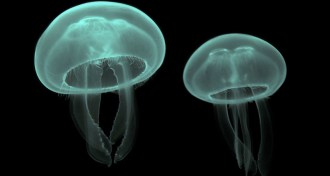 Animals
AnimalsJellyfish bloom in spring when winter ‘timer’ dings
The coordinated appearance of the adult form of the animal is the result of a metamorphosis hormone that accumulates during winter months.
-
 Genetics
GeneticsLife at the Speed of Light
Biology has come a long way from the days of mixing things in petri dishes and hoping something interesting happens. In his new book, Venter introduces readers to a future of precise biological engineering.
-
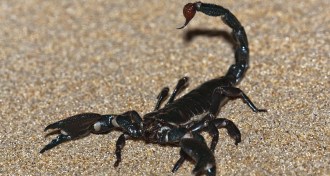 Genetics
GeneticsScorpion’s sting evolved from insects’ defensive proteins
With a single genetic mutation, an insect’s defensive proteins can be transformed into a toxin that gives scorpions their signature sting, a new study shows.
-
 Genetics
GeneticsMicrobe and human genes influence stomach cancer risk
When genes of the bacterium and its human host evolve together, the strain is less harmful than that same strain in a person whose ancestors didn't encounter that particular microbe.
-
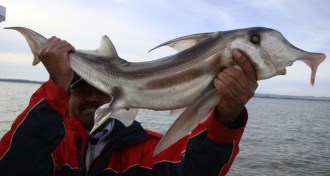 Genetics
GeneticsElephant shark genome small and slow to evolve
The animals have the smallest genome of non-bony fishes and the slowest-evolving genes among vertebrates, a study suggests.
-
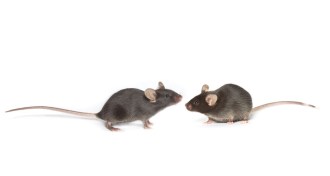 Neuroscience
NeuroscienceAll mice are the same, until they’re not
A new study shows substantial differences in how two closely related mouse strains respond to drugs. It offers new options for linking genes and behavior and may change how scientists think about the similarity of their mouse strains.
-
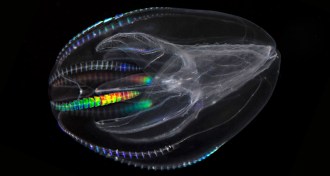 Genetics
GeneticsTop genomes of 2013
Scientists continue to decode the genetic blueprints of the planet’s myriad flora and fauna.
By Beth Mole -
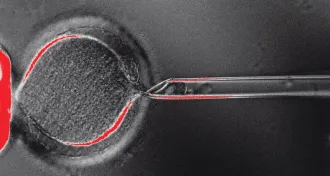 Genetics
GeneticsYear in Review: Caffeine triggers cloning advance
To successfully clone human cells, eggs must be dunked in the stimulant.
By Meghan Rosen -
 Science & Society
Science & SocietyYear in Review: High court rules against gene patents
The justices’ decision opens the way for choices in DNA testing.
-
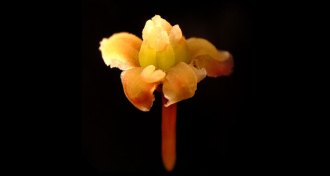 Plants
PlantsLone survivor of ancient flowers is gluttonous gene consumer
The rare Amborella shrub has engulfed whole genomes from other species.
By Susan Milius -
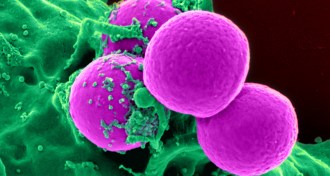 Microbes
MicrobesMRSA strain swiped skin bacteria genes to survive
A common strain of the dangerous microbe may be a wolf in sheep's clothing.